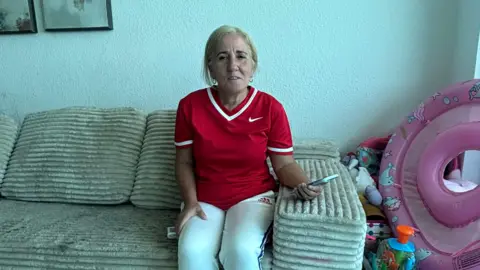When her son was taken into immigration custody, Yaneisy Fernandez feared the worst. Then she got a call from him inside 'Alligator Alcatraz'.
'We had no idea where he was until he called us,' Yaneisy recalls. 'He said, 'mom, they took me to the facility of the crocodiles.' That's how he put it.'
The temporary immigration detention center built in Florida's Everglades has quickly become a polarizing symbol of President Donald Trump's immigration policy, and just two months after it opened, law enforcement has announced its closure.
Located in one of the most notorious regions for immigration enforcement, 'Alligator Alcatraz' housed approximately 3,000 detainees while becoming a focal point for political debate over immigration policies.
With the impending shutdown ordered by a judge, distressing accounts from families of detainees continue to emerge. Michael Borrego Fernandez, Yaneisy's son, suffered serious medical issues while detained, raising questions about the adequacy of care provided.
As conditions within the facility are scrutinized, the treatment of those detained reveals systemic issues within U.S. immigration enforcement, with families desperately seeking information about their loved ones, often met with silence.
'They left him there like a dog,' Yaneisy expressed, highlighting the inhumane conditions reported by many families.
Marco Alvarez Bravo, another detainee, similarly encountered harrowing circumstances. His spouse, Gladys, recounted weeks of uncertainty as communication with him broke down, emphasizing the emotional and physical toll the policies and conditions have inflicted on immigrant families.
As 'Alligator Alcatraz' prepares for closure, the narratives of those impacted highlight a critical lens on immigration policy, care within detention centers, and the human element of a discourse often lost in political rhetoric.





















